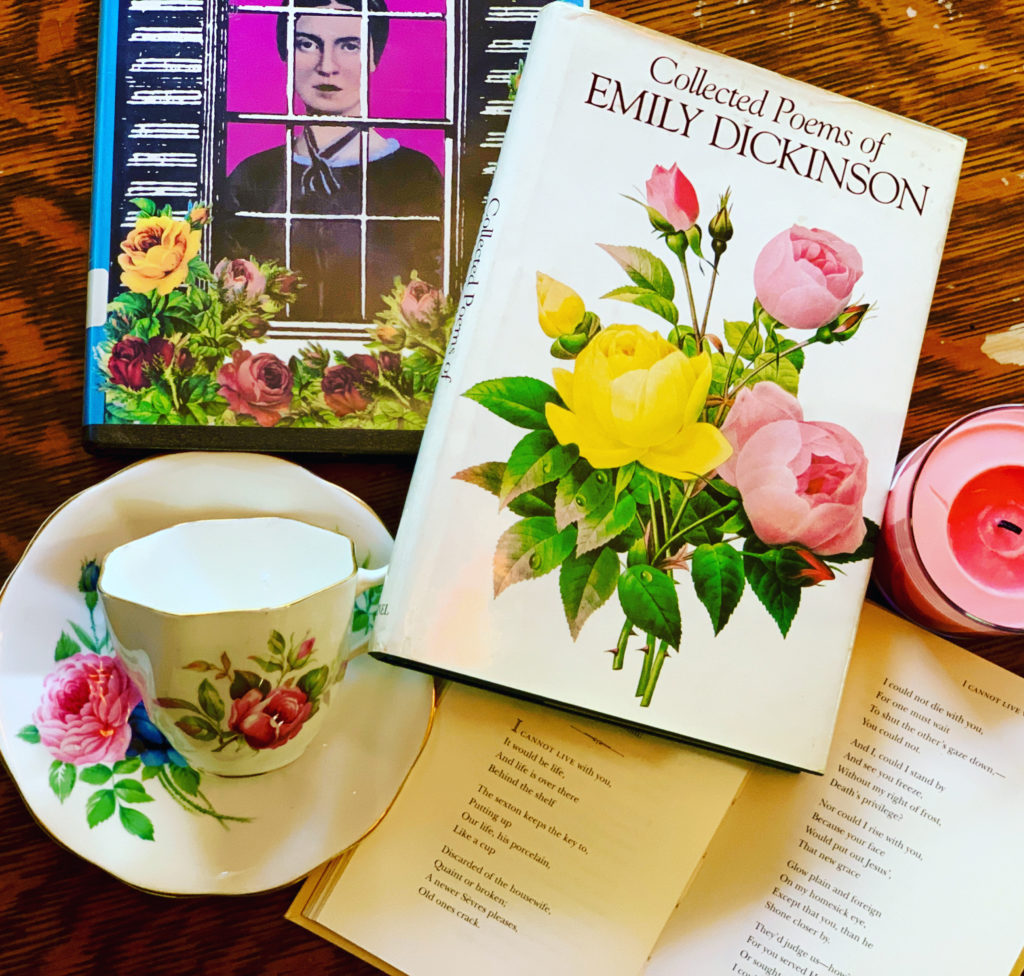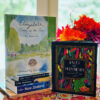
Watching the Apple series Dickinson made me go back and reread Emily again. I do love her poetry so.
Emily Elizabeth Dickinson
(December 10, 1830 – May 15, 1886)
was an American poet. Little known during her life,
she has since been regarded as one of the most important figures in American poetry.
Dickinson was born in Amherst, Massachusetts into a prominent family with strong ties to its community. After studying at the Amherst Academy for seven years in her youth, she briefly attended the Mount Holyoke Female Seminary before returning to her family’s house in Amherst.
Evidence suggests that Dickinson lived much of her life in isolation. Considered an eccentric by locals, she developed a penchant for white clothing and was known for her reluctance to greet guests or, later in life, to even leave her bedroom. Dickinson never married, and most friendships between her and others depended entirely upon correspondence.
Most learned scholars agree Emily was bisexual. As you read her poetry you can feel the love she has for Sue and I believe the Apple Dickinson does a great job on how the poetry feels. While also appealing to a new generation of younger people that will hopefully go seek out her poetry.
I found the following very well written and interesting :
Colorado State University states this: To wrap up CSU English’s celebration of LGBT history month, today we are taking a look at arguably two of the greatest poets of American history, and certainly the most influential of the 19th century– Emily Dickinson and Walt Whitman. Despite very different poetic styles, the two have a few things in common: they both originate from the East Coast, both were born in the early 1800s, and both are suspected by modern readers to be some variation of queer. Though homosexuality in and of itself has never been “new,” the word “homosexuality” was not actually coined until 1868. Even then and after, there were consequences from social to legal to being “out,” so it’s understandable that conversations around their sexuality are recent. Neither Dickinson’s nor Whitman’s sexual identity is confirmed, and most of the questions about the topic are modern concerns, based primarily on their poetry (and some letters), but one thing is for sure — they are both considered founders of a uniquely American poetic voice.
A word is dead when it is said, some say. I say it just begins to live that day. ~Emily Dickinson
Emily Dickinson was born in 1830 in Amherst, Massachusetts in the house that she spent nearly all of her life in. She was born to a prominent family, consisting of a brother, sister, father, and mother, whom she remained close to throughout her life. She attended a few schools away from home as a child, but returned before the age of 20. From then on she slowly transitioned into a life of solitude, seeing only her family on a regular basis. However, she kept many close friendships by way of letters and notes.
Her letters have been published now,
which seems like a violation of privacy to me,
but they are very interesting.
Despite living most of her life as a hermit,
much of her work focuses around society–both the society that she declined to live in and the societies she created within her poetry. She also wrote often about nature, death and dying, the Gospel, and many other themes too abstract to put into a few short words.
I once had a professor tell my class
“Emily Dickinson was a super genius.
She’s smarter than all of you. I’m sorry.”
Given that I often accidentally put deodorant on over my shirt
and get briefly confused about it, he’s probably right.
A renewed love for Emily and her poetry. What a gift.
There’s a certain Slant of light, (320)
BY EMILY DICKINSON
There’s a certain Slant of light,
Winter Afternoons –
That oppresses, like the Heft
Of Cathedral Tunes –
Heavenly Hurt, it gives us –
We can find no scar,
But internal difference –
Where the Meanings, are –
None may teach it – Any –
‘Tis the seal Despair –
An imperial affliction
Sent us of the Air –
When it comes, the Landscape listens –
Shadows – hold their breath –
When it goes, ’tis like the Distance
On the look of Death –



